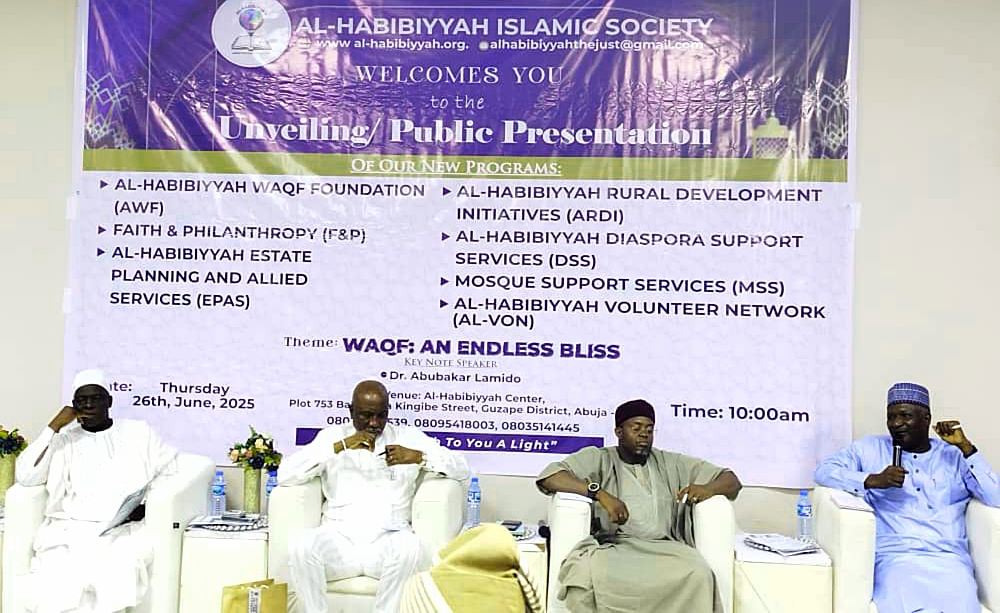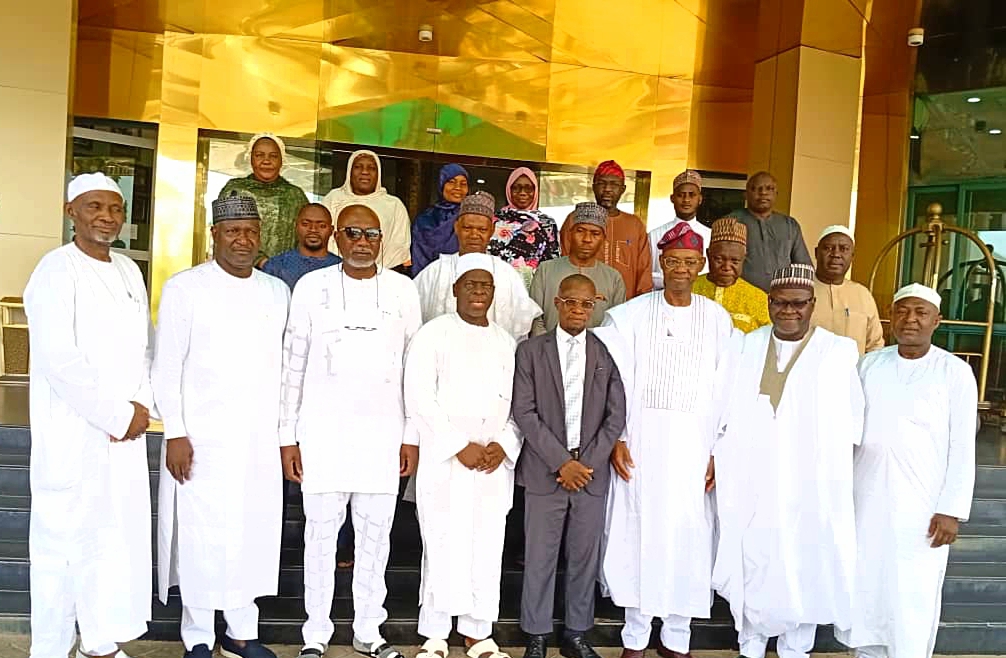Al-Habibiyyah advocates Waqf as solution to socio-economic challenges
By Hadiza Mohammed
The National Chief Imam of Al-Habibiyyah Islamic Society (AIS), Fuad Adeyemi, has identified waqf as a powerful solution to the socio-economic challenges in the country.
He made this known at the unveiling of the Al-Habibiyyah Waqf Foundation (AWF), along with programmes like Faith and Philanthropy, Estate Planning, Rural Development, and Mosque Support Services.
Waqf is a strategic Islamic charitable endowment that involves dedicating assets or properties whose benefits are channeled towards community development.
Adeyemi said the AWF aims to promote sustainable development through the effective collection, management, and distribution of waqf in accordance with Shari’a principles.
He noted that AWF would ensure transparency and accountability, while preserving and growing endowed assets for long-term social benefit.
Adeyemi described waqf as the dedication of property or assets for religious, charitable, or public use, with ownership transferred to Islamic community.
He said the benefits are meant for designated beneficiaries and not the donor or their heirs.
He also explained that waqf provides sustained support for religious, educational, and social welfare initiatives.
The cleric called on the government to encourage waqf, saying it could impact citizens by providing water, electricity, schools, and other socio-economic services.
He added that the organisation plans to raise awareness on waqf and engage wealthy individuals through targeted advocacy.
“The meaning of waqf is that you’re transferring your property to God. This is one programme that even the government should encourage anybody that want to do it.”
“Nigeria is so blessed but unfortunately our problem is administration of our blessings. And waqf will now be a better way of administering our blessings in such a way that it will be useful for you today and tomorrow.”
“We have determined that we are going to enlighten people about this programme not just in Abuja but we are going to move round four or five states,” he said.
Dr Abdullahi Lamido, a lecturer from Bayero University Kano, gave a lecture titled “Waqf: An Endless Bliss”, highlighting its holistic benefits.
“When you make a waqf or by declaring something a waqf, it means it’s no longer your own legally.”
“It is not part of your inheritable wealth or your heirs. It’s not something you can sell or mortgage because it’s not yours,” he said.
“We need to have waqf for schools, we need health care waqf, we need waqf for youth development, and of course for employees generation,” he said.(NAN)(www.nannews.ng)
Edited by Muhyideen Jimoh





